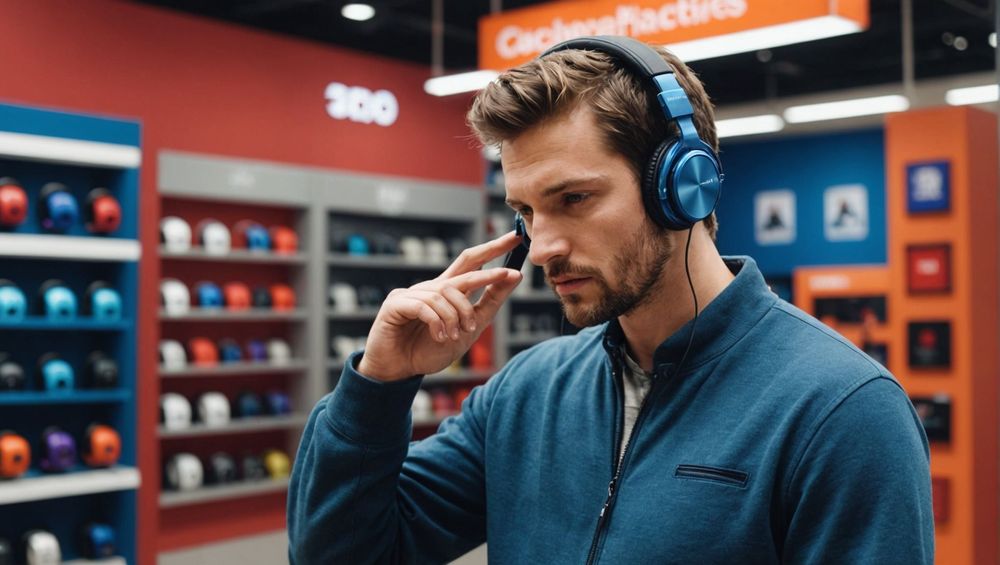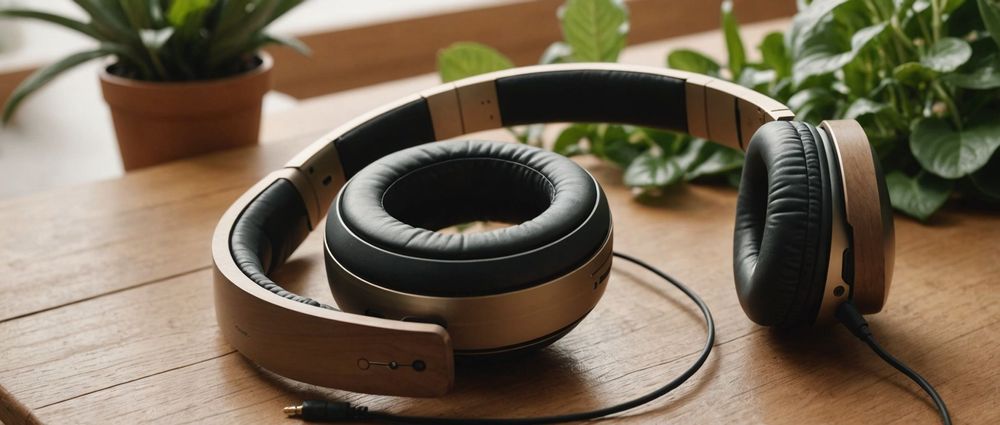When it comes to purchasing headphones, there are several important factors to consider that can significantly enhance your listening experience. Choosing the right headphones involves understanding your personal preferences, usage, and the features available in the market today. With the wide variety of headphones available, from noise-canceling to wireless options, knowing what to look for can make your decision easier and more satisfying. In this article, we’ll explore five critical tips that will guide you in selecting headphones that perfectly suit your auditory needs.
1. Determine the Type of Headphones You Need

The first step in choosing the right headphones is to identify which type best suits your lifestyle and listening habits. There are several types to choose from:
- Over-Ear Headphones: These provide excellent sound quality and comfort for long listening sessions, making them ideal for home use.
- On-Ear Headphones: Smaller and more portable, these are suitable for casual listening on the go.
- In-Ear Headphones: These are compact, often noise-isolating, and great for commuting or exercising.
- True Wireless Earbuds: These offer maximum freedom of movement without any wires, perfect for active lifestyles.
- Noisew-canceling Headphones: Ideal for frequent travelers, these headphones block out ambient noise for an immersive experience.
Once you’ve determined the right type, you can then delve deeper into features and specifications that align better with your intended use.
2. Consider Sound Quality and Audio Technology

Sound quality is a defining characteristic for headphones and varies widely between brands and models. When evaluating sound quality, look for headphones that offer clear, balanced sound across different frequencies. Pay attention to:
- Drivers: The size and quality of the drivers impact sound clarity and bass response.
- Frequency Response: This indicates the range of sounds a headphone can reproduce, typically measured in Hertz (Hz).
- Impedance: Lower impedance headphones are easier to drive, while higher impedance models require more power but often provide better sound quality.
Listening to various models before purchase, if possible, can help you identify which headphones resonate with your auditory preferences. Remember that sound quality can also be subjective; what sounds great to one person might not appeal to another.
3. Evaluate Comfort and Fit
Comfort should never be overlooked when selecting headphones, especially if you plan on wearing them for extended periods. The fit can influence not just comfort but also sound isolation. Here are some factors to consider:
- Padded Ear Cups: Look for headphones that feature plush cushioning around the ear cups to minimize discomfort.
- Adjustable Headbands: A good fit should allow you to customize the headband size so the headphones don’t fall off.
- Weight: Lighter headphones can be more comfortable during longer use.
- Material: Breathable materials can help reduce heat build-up during use, adding to comfort.
Trying on headphones in-store can help you determine which pair feels best and meets these comfort criteria.
4. Look Into Additional Features
Modern headphones come packed with features beyond basic audio, enhancing the overall user experience. Consider the following features that might be relevant to you:
- Bluetooth Compatibility: Wireless headphones eliminate the hassle of cords, providing greater freedom, especially for active use.
- Noise Cancellation: Active noise cancellation can be a game-changer if you often find yourself in noisy environments.
- Built-in Microphone: Look for headphones with a high-quality mic if you plan to use them for calls or video conferencing.
- Battery Life: For wireless options, consider headphones with longer battery life to avoid frequent charging.
- Voice Assistant Integration: Some models allow users to access voice assistants seamlessly, adding a layer of convenience.
Assess which of these features resonate most with your needs and usability to determine the optimal headphone choice.
5. Set a Budget and Compare Prices
Before making a purchase, it’s crucial to establish a budget that reflects what you’re willing to spend on headphones. Prices can range from budget-friendly options to high-end models. Here are some tips for budgeting:
- Define Your Price Range: Set limits to avoid overspending while ensuring you find a quality option.
- Compare Models: Utilize comparison websites and retail platforms to evaluate features versus cost across different models.
- Look for Sales: Timing your purchase during sales events can lead to considerable savings.
- Read Reviews: Customer feedback can offer insights into whether a specific model is worth the investment.
Establishing a budget and doing comparative shopping can help you land a quality pair of headphones without breaking the bank.
Conclusion
Choosing the right headphones can significantly enhance your auditory experience, whether you’re a casual listener or a serious audiophile. By considering the type of headphones that fit your lifestyle, assessing sound quality, prioritizing comfort, exploring additional features, and setting a realistic budget, you’ll be well-equipped to make an informed decision. Remember, the ideal headphones should not only sound great but also feel comfortable and meet your specific needs. Take your time, do your research, and enjoy the journey to find the perfect pair of headphones that elevate your music experience.
FAQs
1. What are the best headphones for sports activities?
For sports, consider lightweight, sweat-resistant, and secure-fitting options like in-ear or true wireless earbuds that won’t fall out during movement.
2. Do more expensive headphones really sound better?
While price often correlates with the quality of materials and sound performance, personal preference plays a significant role in perceived sound quality.
3. Are noise-canceling headphones worth the investment?
If you frequently find yourself in loud environments, noise-canceling headphones can provide a more immersive experience and are generally worth the investment.
4. How can I maintain my headphones for longevity?
Keep your headphones clean, store them properly in a case, and avoid exposing them to extreme temperatures to ensure their longevity.
5. Can I use wired headphones with my smartphone?
Yes, as long as your smartphone has a headphone jack or an adapter for USB-C or Lightning connectors, you can use wired headphones.
